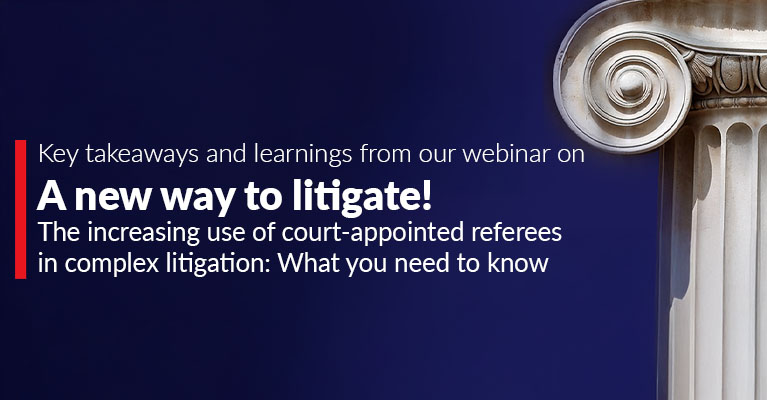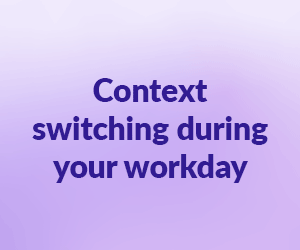The use of artificial intelligence in legal practice continues to mature. While early adoption focused on discrete applications such as drafting assistance, document summarisation, and research support...
Introduction Artificial intelligence is reshaping the ways organisations manage the entire employment lifecycle, from screening resumes and identifying potential candidates to supporting employee development...
Authored by Jennifer Raphael , Senior Legal Writer, Construction. 2026 is shaping up to be a pivotal year for construction law in Australia. Across multiple jurisdictions, governments are moving from...
Across Australia and New Zealand, legal professionals are embracing a new era of AI-powered transformation. At the 2025 LexisNexis Legal AI Showcase , hundreds of attendees tuned in to see how Lexis...
Authored by Seeta Bodke , Head of Product - Pacific, LexisNexis® Legal & Professional At LexisNexis, our mission is to advance the rule of law through responsible innovation. The launch of Protégé General...

What are court-ordered references?
A reference involves the court making an order to appoint a referee (or a panel of referees) to assist the court in determining questions of fact or law in dispute in a proceeding.
A reference may be ordered at any stage of a proceeding and may be conducted as an interlocutory process (ie, for disputes about standing or discovery) in parallel with the substantive proceeding.
Referees may be “subject matter experts” with expertise in an area of specialised knowledge, or “independent fact finders” with experience in resolving factual disputes (such as retired judges or senior barristers). Referees may be proposed by the parties or nominated by the court.
Once appointed, a referee conducts an inquiry in accordance with the terms of the reference and prepares a report that addresses the questions put to it by the court. On receipt of the report, the court must decide whether to adopt (in whole or in part), vary or reject the referee’s findings at an adoption hearing.
The increasing use of references
Historically, references have been used in cases that involve highly technical subject matter, such as complex construction cases. In recent times, however, references have been increasingly utilised in class actions, insolvency proceedings and other complex commercial cases.
This uptick in the use of references may be traced back to the decisions of Justice Rares of the Federal Court in Optiver Australia Pty Ltd v Tibra Trading [2012] FCA 558 and Justice Lee in Kadam v Miiresorts Group 1 Pty Ltd (No 4) [2017] FCA 1139, where the latter summarised the history of references (and analogous processes).
Subsequent decisions of Justice Lee have established a body of consistent modern caselaw supporting the use of references.
In November 2022, the Federal Court issued the Referee and Assessor Practice Note (GPN-REF), which effectively synthesises the court’s reasoning in recent cases and provides that the court’s finite resources must be marshalled with discrimination in the public interest, transcending the specific interests of the parties.
What types of questions may be referred out?
In most Australian jurisdictions, courts may refer any questions of procedure, fact, law, or mixed questions of fact and law, for determination.
Recent case examples of the types of questions that have been referred out include:
- Kadam v Miiresorts Group 1 Pty Ltd (No 4) [2017] FCA 1139, in which the court-appointed former High Court Justice Ian Callinan as referee to travel to India to conduct an inquiry and prepare a report addressing questions concerning Indian domestic law;
- Gill v Ethicon Sàrl (No 10) [2023] FCA 228 (the Johnson & Johnson pelvic mesh class action), in which the court appointed a barrister as referee to inquire and report on the outcome of a limited set of potential group member claims, which would serve as a ‘master assessment’ that could be applied to assess other individual group member claims; and
- Santos Limited v Fluor Australia Pty Ltd (No 2) [2020] QSC 373, which concerned a dispute about the construction of a major coal seam gas project in Queensland, in which the court referred all legal and factual issues raised on the pleadings to a panel of referees for inquiry and report. For further detail regarding the Santos decision, refer to Gas Project Construction Litigation: Australian Courts can Refer the Substance of a Whole Proceeding to a Panel of Referees.
Following the decision in Santos, it is possible that "bulk referrals” of all legal and factual issues in a dispute may become more common.
What are the benefits and risks of references?
Some advantages of references include that:
- Referees may have greater availability than the court and can expedite the determination of key issues.
- References are more flexible than traditional trials. A referee may conduct their inquiry without undue formality or regard to the rules of evidence.
- Referees with specialised knowledge may be better equipped than judges to resolve disputes that turn on technical factual issues. In the Federal Court, New South Wales and Queensland, references may be made to a panel of experts who can leverage their respective expertise.
Some potential disadvantages include that:
- References may be less rigorous than a trial and result in unexpected findings. Unlike a trial that takes place in open court, an inquiry in a reference is a closed process.
- It is unlikely that a court will overturn a referee’s findings of fact in the absence of a patent misapprehension of the evidence or manifest unreasonableness in the referral process. This is a high threshold.
- Parties bear the costs of the reference, which may be considerable depending on the identity of the referee, the number of referees appointed, and the terms of the reference.
References in practice – top tips and takeaways
- Consider whether any issues in your matter are suitable for reference. In complex matters, anticipate the possibility of a reference at an early stage and be prepared to address the court at the first case management hearing.
- Advise clients about references, including the potential benefits, risks and potential costs, including the rates charged by experienced expert referees, possible travel expenses and the costs of a disputed adoption hearing.
- Take care when framing the questions for referral, having regard to the requirements in the relevant jurisdiction and whether the questions are best drafted in broader or narrower terms (eg, in Victorian courts, each question must be separately stated). Ensure that questions for the referee do not encroach on matters to be determined by the court.
- Make inquiries of suitable referees to propose to the parties and the court. Ensure that any referee nominated by a party or by the court has the requisite technical knowledge or experience and confirm that they are free from any conflict of interest.
- When applying for or resisting a reference, collate necessary material and draft appropriate submissions to address the court on matters including:
- whether or not the proposed reference promotes efficient case management and facilitates the overarching purpose of the relevant civil procedure provisions, including the effect that the reference would have on the estimated timeline for the proceeding, the number of witnesses and documents involved and the technical complexity of the issues of fact or law in question;
- a detailed estimate of costs of the proposed reference, and whether the reference is likely to increase or minimise the costs of the proceeding for the parties; and
- the suitability and availability of the proposed referee(s).
Practical Guidance Dispute Resolution is here to give you the edge
For a practical summary of the reference process in the Federal Court, including how to advise your clients about references, consult our detailed guidance notes in Practical Guidance Dispute Resolution, including Federal Court – Referral of proceedings to referees.
To access further guidance, including practical tips for making or opposing an application for a reference, preparing submissions to the court, and navigating a referee’s inquiry, please contact us to arrange a trial of Practical Guidance Dispute Resolution.
Legal Advice disclaimer: All information provided in this document is general in nature and is provided for educational purposes only. It should not be construed as legal advice. For legal advice applicable to the facts of your situation, you should obtain the services of a qualified solicitor licensed to practice in your state/territory. Information contained in this document is current as of 18 May 2023.





